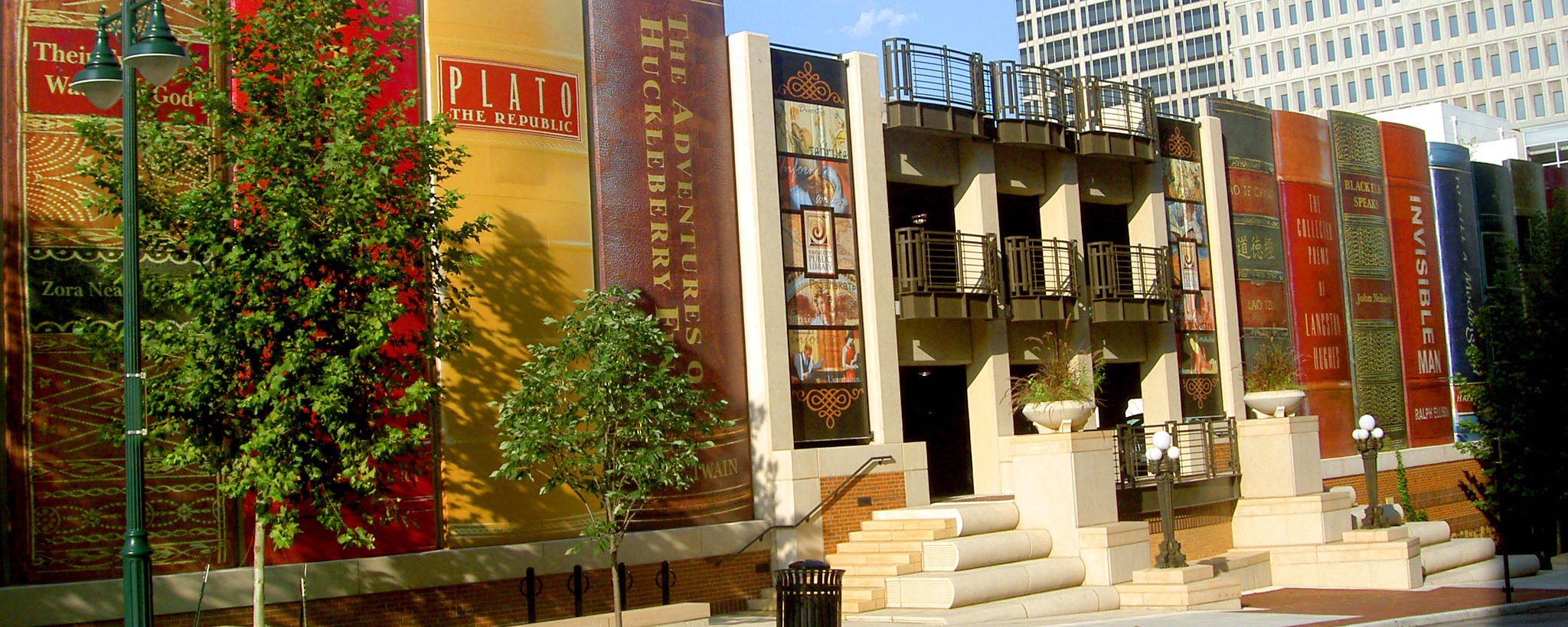

We like to compile reading lists for our different sections, and Metropolis is no exception. Here are our recommendations for anyone wishing to explore innovation in cities–and how cities influence innovation.

“By its nature, the metropolis provides what otherwise could be given only by traveling; namely, the strange.”
–Jane Jacobs, The Death and Life of Great American Cities (1961)

Start Here
- The Story of Cities
Multiple writers, The Guardian [2016]
This 50-part series from The Guardian “charts the history of the planet’s urbanization.” Highlights include the lost majesty of Benin City and the birth of the science of urban planning in Barcelona.

Books
- The Death and Life of Great American Cities
Jane Jacobs [1961]
Possibly the most influential book about urban planning. Jacobs argues against in favor of chaos, complexity, and mixed-use neighborhoods.
- The Power Broker: Robert Moses and the Fall of New York
Robert Caro [1975]
Robert Moses, who for half a century was a city planner for (and kind of unelected emperor of) New York City, is the subject of this Pulitzer Prize-winning book. Moses used his position and political influence to shape American urban design and policy for decades; Caro performs a deft autopsy, illustrating the political power urban planners possess.
- London: The Biography
Peter Ackroyd [2001]
Peter Ackroyd covers 2,000 years in nearly half as many pages, showing how a small Roman fishing and trading village grew to become a candidate for the capital city of the world.


Shorter Reads
Life & Death & Everything In Between
- “I’m From Philly. 30 Years Later, I’m Still Trying to Make Sense of the MOVE Bombing“
Gene Demby, NPR [10-minute read] - “How One California City Began Bringing Its Murder Rate Down–Without Cops“
Heather Tirado Gilligan, The Nation [7-minute read] - “Death by Gentrification: The Killing That Shamed San Francisco“
Rebecca Solnit, The Guardian [15-minute read] - “A Call for Help: What the Kitty Genovese Story Really Means“
Nicholas Lemann, The New Yorker [7-minute read] - “Los Angeles Isn’t London, and Other Things That Are Wrong With California“
Dave Munson, Munson’s City [5-minute read] - “The American Lawn Needs to Die“
Eric Nicholson, Dallas Observer [6-minute read] - “London’s Great Exodus“
Michael Goldfarb, The New York Times [3-minute read] - “Spite Houses: 12 Homes Created With Anger and Angst“
Patrick Sisson, Curbed [3-minute read] [via @jasmineeec] - “When I Grow Up: The theme-park chain where children pretend to be adult“
Rebecca Mead, The New Yorker [10-minute read] [via @jasmineeec] - “Outkast, Contextually“
Jason Parham, Gawker [5-minute read] [via @jasmineeec] - “The New Roma Ghettos“
Aaron Lake Smith, Vice [10-minute read] [via @jasmineeec]
Architecture
- “The New New World“
Anne Applebaum, Slate [3-minute read] - “The Father of the American Shopping Mall Hated What He Created“
Anne Quito, Quartz [5-minute read] - “Inside Almere: The Dutch City That’s Pioneering Alternative Housing“
Thomas Feary, The Guardian [4-minute read]
Infrastructure & Planning
- “The Racist Housing Policies That Built Ferguson“
Ta-Nehisi Coates, The Atlantic [3-minute read] - “Why the People in Charge of Transit Systems Should Be Required to Actually Ride Transit“
Eric Jaffe, CityLab [3-minute read] - “Visions of a Development Rising From the Sea“
Julie Satow, The New York Times [4-minute read] - “The Car Century Was a Mistake. It’s Time to Move On“
J. H. Crawford, The Washington Post [3-minute read] - “Building Bigger Roads Actually Makes Traffic Worse“
Adam Mann, Wired [5-minute read] - “The Suburb That Tried to Kill the Car“
T. R. Goldman, Politico [4-minute read] - “Debunking the Cul-de-Sac“
Emily Badger, CityLab [5-minute read]

Watch and Listen
- “Soul City,” 99% Invisible [34-minute listen]
This episode of 99% Invisible, hosted by Roman Mars, explores an attempt by a civil rights leader in the 1960s to build a new home for African-Americans wanting to escape their existing deprived communities.
(Other 99% Invisible episodes on the topics of cities worth exploring include: one about an unfinished art school in Havana; another about a skyscraper in NYC that nearly fell over; an episode about how a city can be built in such a way to keep poor and rich people apart without either realizing it.)
- Jerry Building, BBC [36-minute watch]
Writer and critic Jonathan Meades has made several documentaries for the BBC about architectural history. Jerry Building examines how architecture (and architects) can be used as tools of cultural control and repression within the context of authoritarian states–in this case, Nazi Germany. (He has also covered the same issue in Soviet Russia, as well as gentrification and regeneration, retrofuturism, and the legacy of the Victorians.)
- Sagrada: The Mystery of Creation [94-minute watch]
Sagrada is a beautifully shot portrait of both Barcelona’s most famous building, and the team of religiously-inspired artisans who have been trying to complete Gaudi’s life’s work.
- The Pruitt-Igoe Myth [83-minute watch]
The Pruitt-Igoe housing development in St. Louis reflected the common belief at the time that modern architecture could alleviate social isses; its failure, and subsequent demolition, has been held up as evidence that large-scale modernist social housing can never work. This documentary pushes back against that notion, exploring the large systemic reasons for the development’s problems.
- Waste Land [100-minute watch]
The waste of the world has to go somewhere, and in many cities–like Rio de Janeiro–the poor scavenge that waste for survival. Artist Vik Muniz’s portrait of them, and their journey from outsiders to outsider artists, was nominated for an Oscar for Best Documentary in 2010.


This post is part of How We Get To Next’s Metropolis month, looking at the future of cities throughout April 2016. If you liked this story, please click on the orange heart below to recommend it to your friends.
